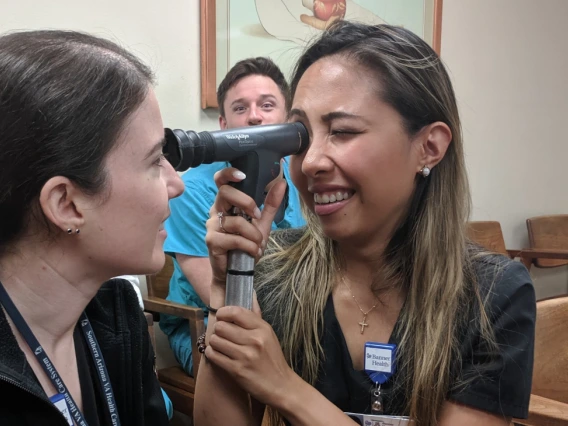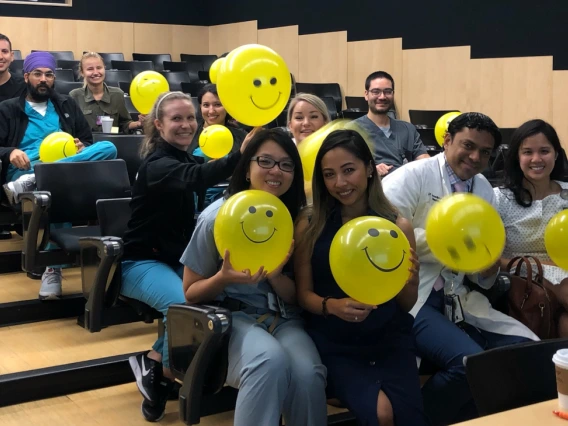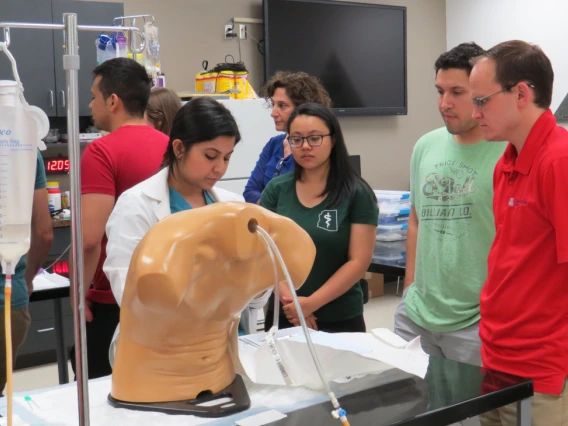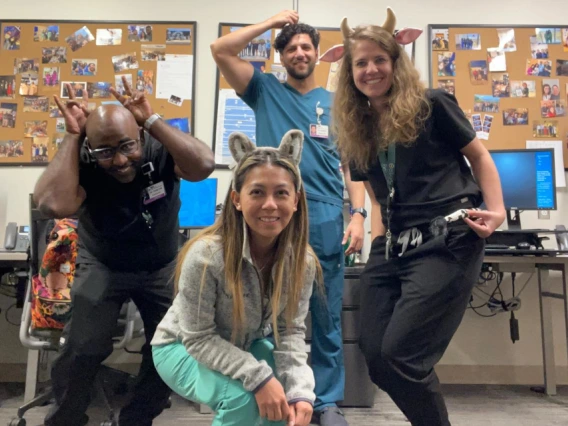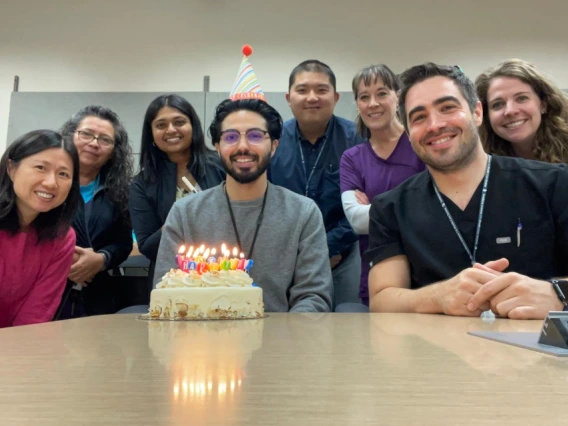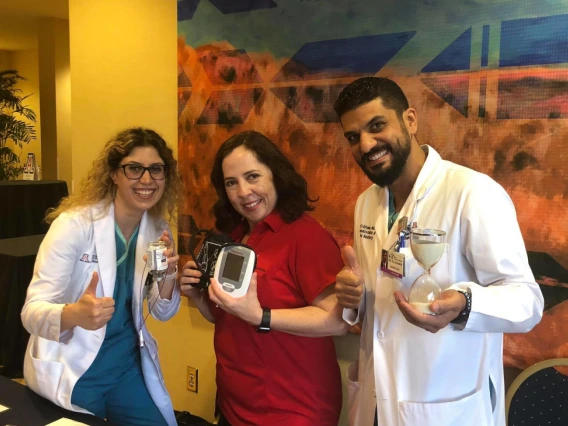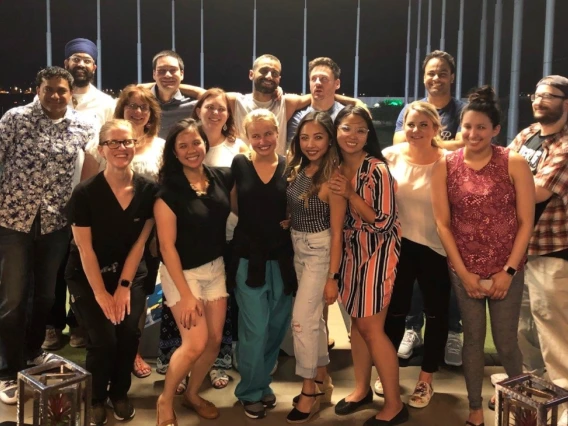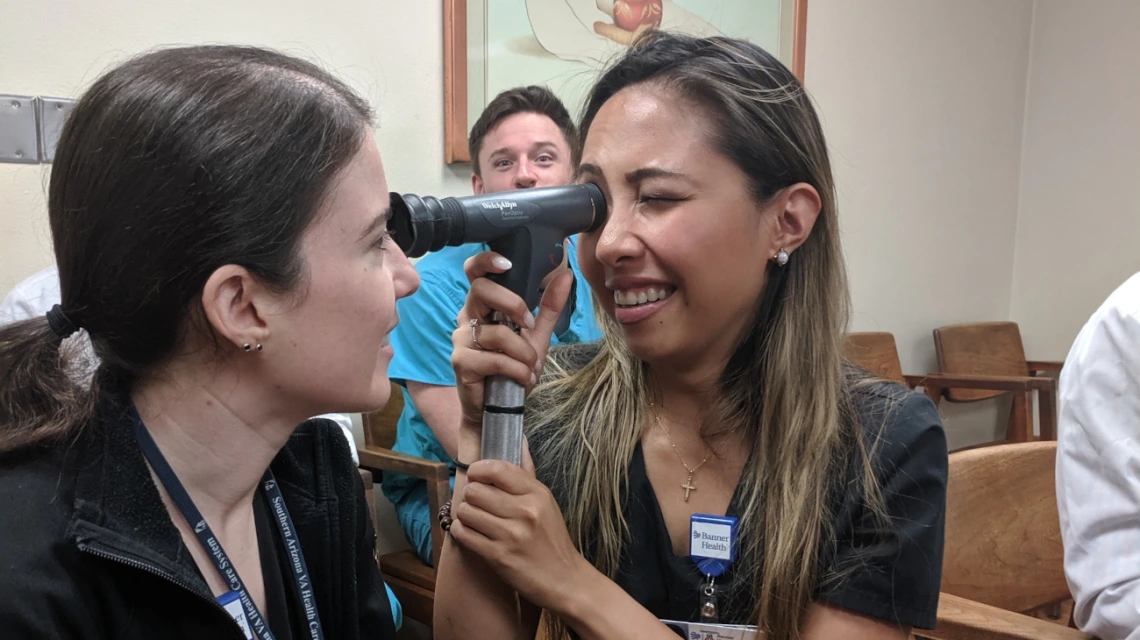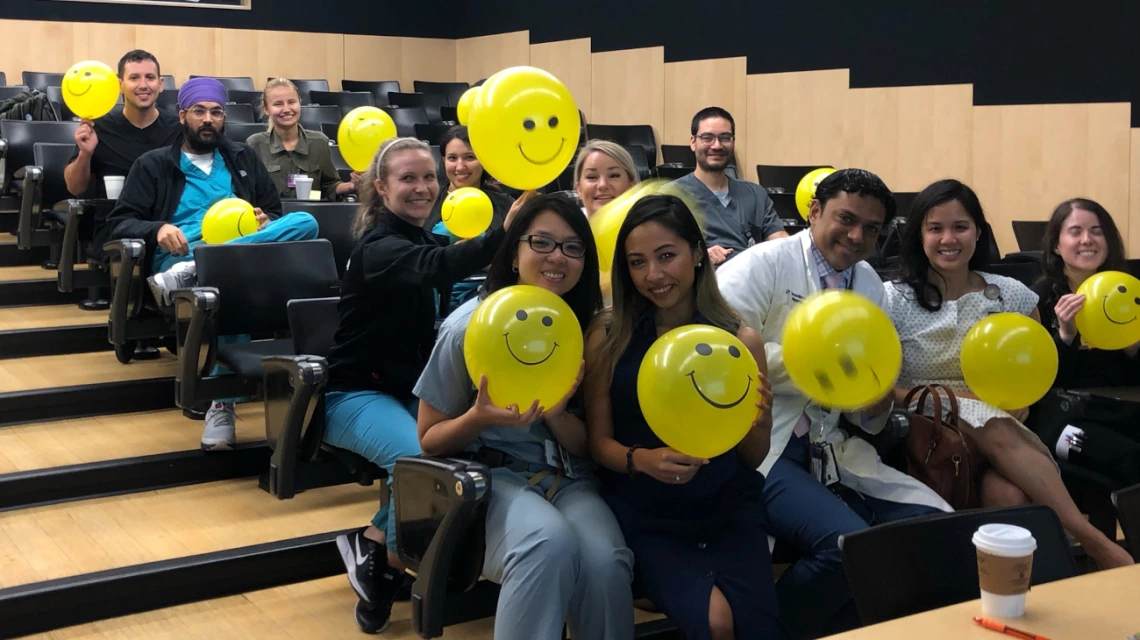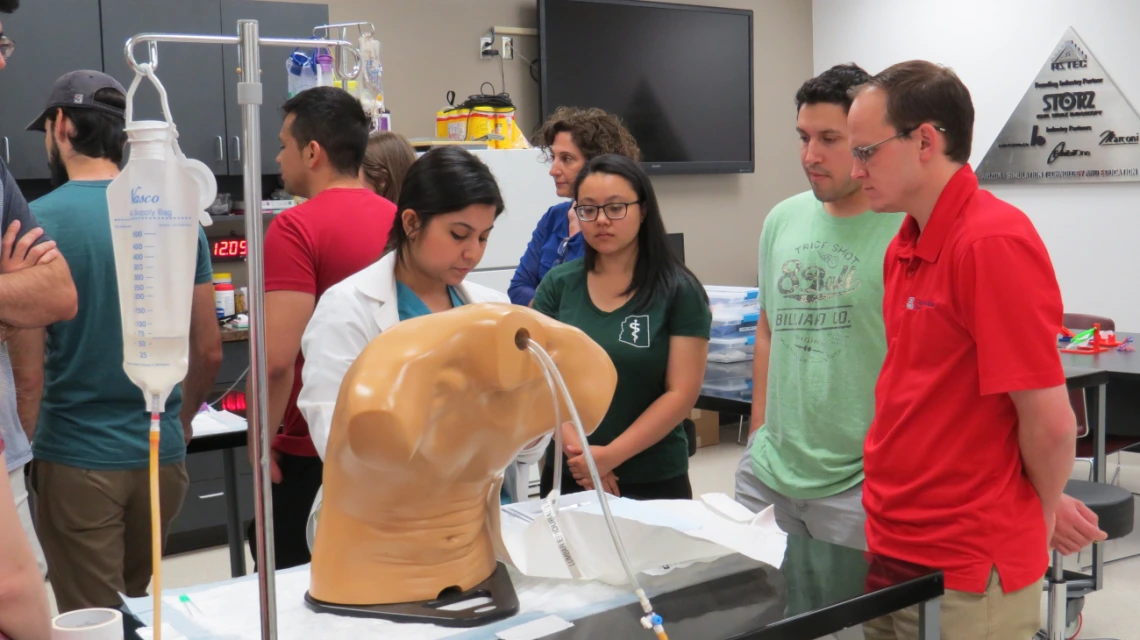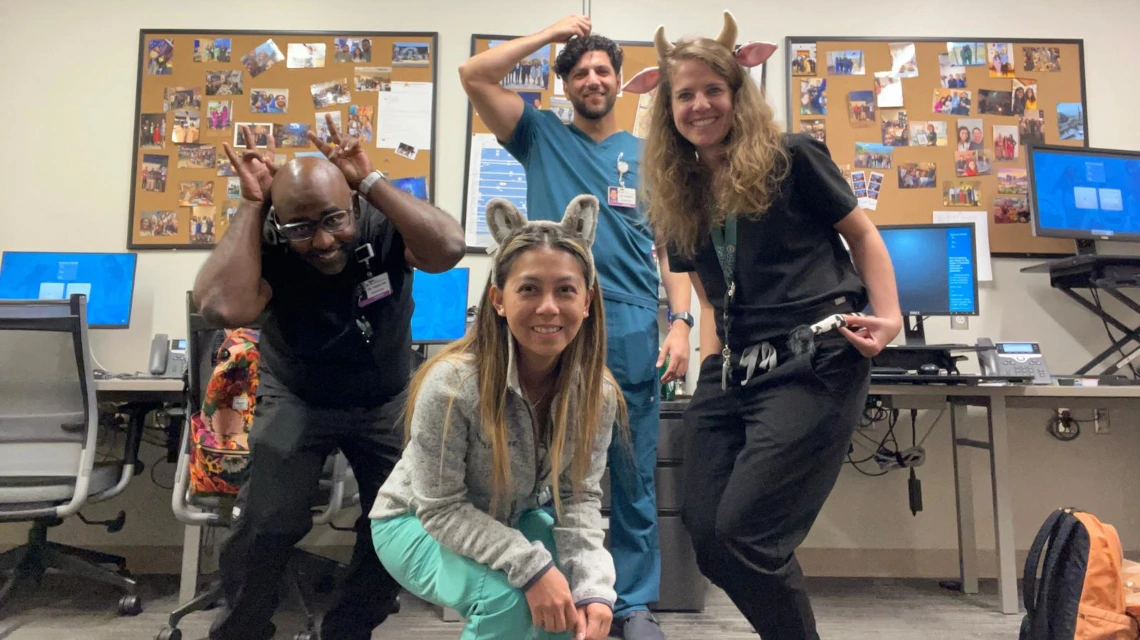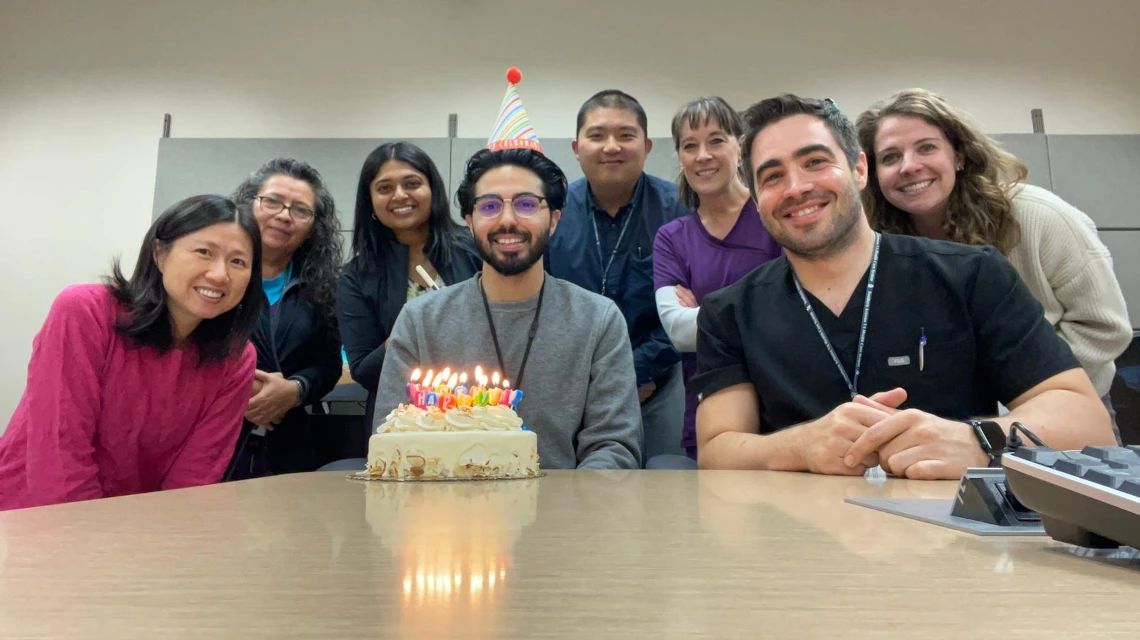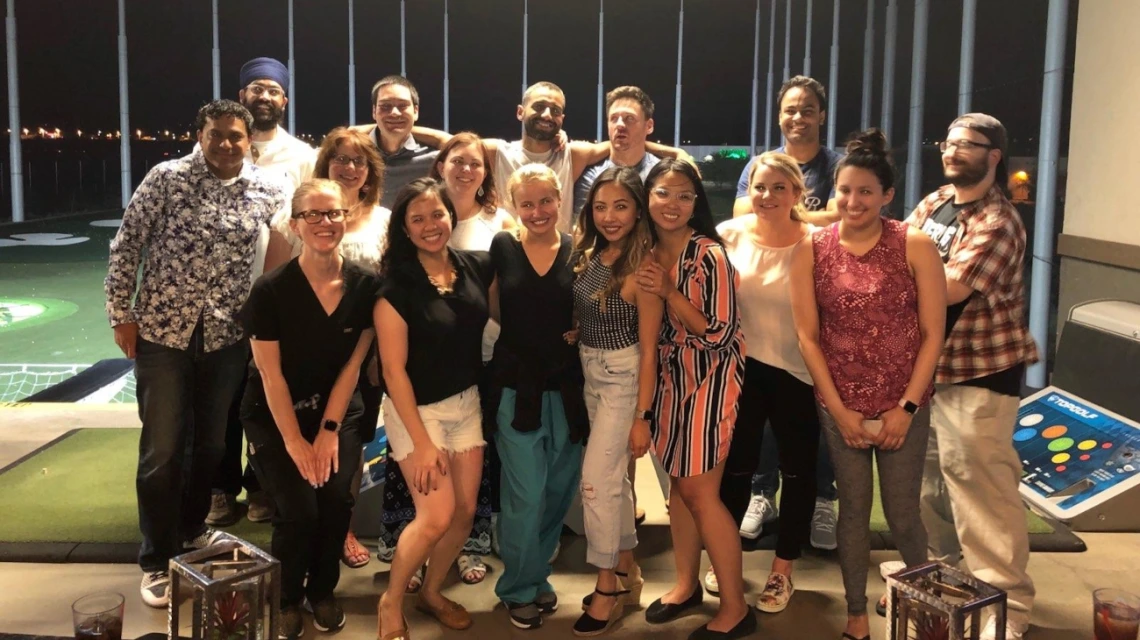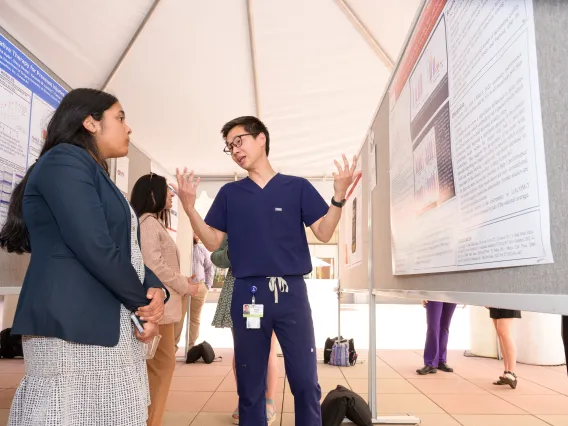Neurology
Residency Program
The Department of Neurology was founded in 1967 and the residency program launched in 1969. Our training experience is highly competitive, with residents learning the fundamentals of inpatient neurology while caring for patients on the wards and in state-of-the-art intensive care units. Ambulatory care experience is gained early in training and is extended through ongoing continuity of care clinics throughout the residency. Residents also participate in subspecialty clinics.
Throughout their training, an emphasis is placed on the team approach to patient care. Residents are encouraged to learn and teach the important aspects of clinical evaluation and the pathophysiology of disease processes. With each year of additional training, residents receive greater responsibility for patient care and teaching of other team members. By completion of training, residents are expected to be competent and independent in inpatient and outpatient neurology.
Program Director
About Our Program
The neurology residency program you choose and your experiences during training will shape the rest of your career. We provide a nurturing environment to our trainees and impart the science and art of neurology to them in a highly professional and friendly environment, and instill the confidence required for the independent practice of neurology. We value individual growth and we collectively believe that mentorship is crucial in assisting each of our trainees to achieve professional and personal success.
Our department is deeply committed to an educational environment combining strong clinical teaching in neurology with opportunities for interdisciplinary research. Our faculty members are highly approachable and friendly, enjoy teaching and provide exceptional patient care amidst an informal teaching atmosphere. Formal teaching is also a priority and includes didactic lectures and clinical conferences.
During your neurology residency here, you will be exposed to a large and diverse patient population, a broad educational experience and a robust academic environment that encourages research. During the PGY-3 and PGY-4 years, residents are given the opportunity to develop their clinical judgment and make independent decisions with close guidance from neurology faculty. Our graduates have advanced to both private practice and academic careers and have done well.
For individual seeking top-class neurology training through close mentoring and structured didactics in an informal environment in an easy-to-live city in the beautiful desert southwest, the University of Arizona program in Tucson is an excellent choice.
- Banner – University Medical Center Tucson
- Banner – University Medical Center South
- Southern Arizona Veteran’s Administration Health Care System (SAVAHCS)
Our residency program provides a comprehensive learning environment by which residents learn, practice and achieve competency through patient care exposure, regularly scheduled didactic learning and research experiences.
Neurology Electives
- Behavioral Neurology
- Clinical Neurophysiology
- Epilepsy & EEG
- Movement Disorders
- Multiple Sclerosis/General
- Neuroimaging
- Neuromuscular Disease & EMG
- Neuro-oncology
- Neuro-ophthalmology/Neuro-Otology
- Neurosurgery
- Neurorhospitalist
- Neurocritical Care
- Pain Medicine
- Palliative
- Sleep Medicine
- Stroke & Vascular Neurology
- An expert in diagnosing and managing diseases of the nervous system who is equally effective in the office and in the hospital setting.
- A consultant to patients and generalist physicians in rural and other special environments for difficult neurological problems, or in areas in which the neurologist has unique expertise.
- A compassionate and ethical physician who is a passionate advocate for patients.
- A physician who is trained in clinical epidemiology, clinical decision making and preventive medicine.
- A master of communication, who listens and conveys information effectively to patients and colleagues.
- A resource manager who can bring a thoughtful and efficient style of practice to the evaluation and management of patients and their problems.
- An individual who possesses special skills to respond to the changing medical and social needs of local communities.
- An effective leader and coordinator of the entire patient care team who can work in a complementary fashion with all members of this team.
- A clinical information manager who can take full advantage of electronically stored data and who can use the most modern tools for communication.
- A person who is capable of balancing between the demands posed by personal growth and professional development.
- Offers a solid foundation in the diagnosis and management of patients with complex neurological disorders, preventive neurology and the delivery of health care.
- Instills a foundation for future training in subspecialty neurology and/or neurology research.
- Promotes attributes and skills for life-long learning, inquiry and teaching.
- Develops the skills required to function and excel in multiple practice settings.
We are a four-year categorical neurology program. Most of the PGY-1 year is spent in the Department of Medicine with many rotations being completed at the Southern Arizona VA Healthcare System, our academic affiliate institution. The PGY-1 program provides excellent training and fulfills the internship requirements for Board eligibility. You need not apply separately with the Department of Medicine.
The program seeks:
- Candidates with an exceptional interest in a clinical and/or research neurology career
- Candidates whom the selection committee feels are outstanding and will be a good match for our program
- Candidates with scores equal to and greater than 203 on both Steps of the USMLE at first attempt
The program accepts candidates of U.S. medical schools and international medical graduates (IMGs) on a competitive evaluation process. Neurology positions are offered through the National Resident Matching Program (NRMP). For IMGs who match with our program, J-1 visas are sponsored by the University of Arizona on a case-by-case basis after departmental recommendation. Passing the USMLE Step 3 with good scores would be in your favor if you are an IMG. Please visit the International Scholars Home Page at the University of Arizona for visa information. IMGs may also visit the Education Council on Foreign Medical Graduates (ECFMG) web site for further information.
To apply, register with the Electronic Residency Application Service (ERAS) online.
Interviews will be scheduled after review of completed applications, which consist of the following:
- completed application in ERAS
- CV
- personal statement
- 3 letters of recommendation
- active ECFMG certficate (if applicable)
- dean’s letter
- transcripts
- USMLE/COMLEX scores
Interviews may be scheduled from November through early February.
Frequently Asked Questions
Q: What is your deadline for receiving applications?
A: December
Q: What is your timeline for conducting interviews?
A: We start interviewing in November and end in late January.
Q: How can I apply to your program?
A: Applications should be submitted through ERAS. Please be sure to follow the ERAS application guidelines.
Q: How many positions are you offering through the match this year?
A: We offer up to six PGY-1 neurology residency positions per year.
Q: Do you have a cut-off for USMLE scores to consider the application?
A: Generally, we require residency applicants to submit USMLE scores on both Step One and Step Two. The important thing to note is that the Selection Committee does look at the entire application and does not base its decisions on USMLE/COMLEX scores.
Q: Does the program accept scores from multiple attempts on USMLE?
A: All sets of scores will be considered. While the number of attempts may have an effect on the likelihood of being invited for an interview, it is not in itself a disqualifying factor.
Q: Is there a cut-off for time from medical school graduation to be considered for an interview?
A: We typically interview candidates who have graduated from medical school within the past five years. Rare exceptions are made when the candidate has done clinical work in neurology for a substantial period since graduation.
Q: Do you require any clinical experience?
A: No, we do not. However, U.S. clinical experience is preferred for IMG applicants.
Q: Does your program accept international medical graduates?
A: Yes.
Q: What types of visas do you sponsor?
A: Our institution sponsors J-1 visas.
Q: Do you offer a transitional year (PGY-1) with your program?
A: Yes, the neurology residency program is categorical; therefore it does include the PGY-1 year.
Q: How many call days are residents required to take each month?
A: As of 2020, we have implemented a night float system, which was created to help ensure that on-service residents are adequately rested during the regular work day by relieving them of overnight call duties.
Q: Do you require or strongly encourage research?
A: Research is not required; however, research opportunities are available. Some of our residents have elected to become involved in research electives and we strongly support this.
Q: Does your program recommend any specific fourth-year electives?
A: Neurology electives or sub-internships are recommended electives.
Resident Life
Our trainees come from all over, representing many of the best medical schools throughout the United States and the world. While our trainees work hard, we have a variety of didactics, team-building, wellness activities and social events. Haunted houses, painting parties, escape rooms and even go-karting are some of the ways we like to cultivate a strong and supportive team. The Department of Neurology’s residents are truly what makes our program shine.
Photo Gallery
Training in Tucson
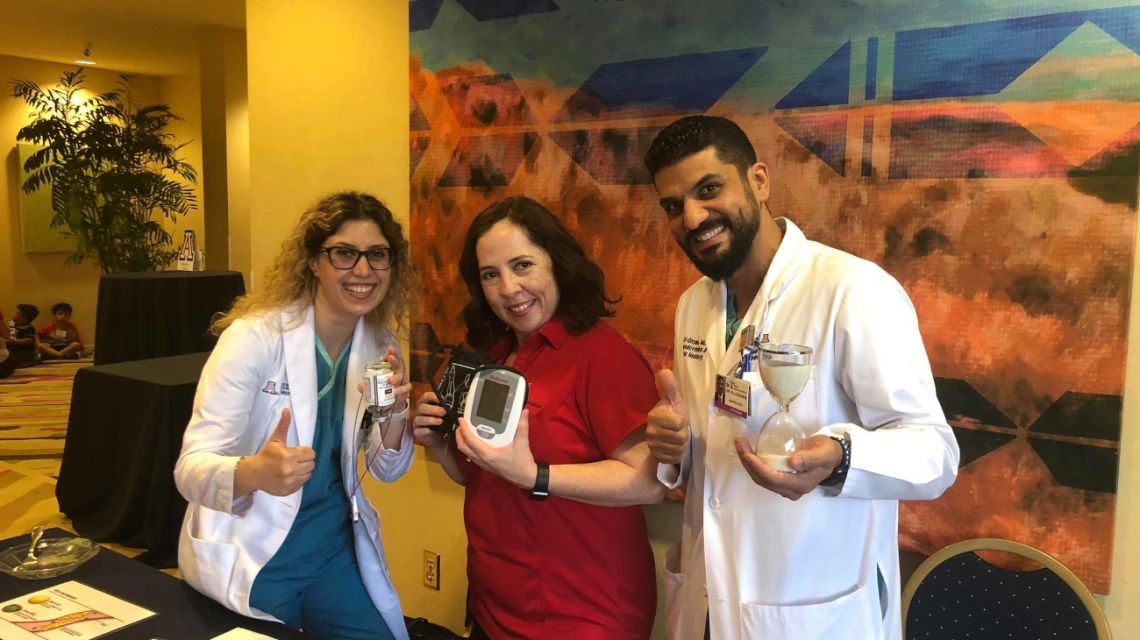
Graduate Medical Education Office
Learn more about the residency and fellowship programs at the College of Medicine – Tucson
Regina Goeller
Residency Program Manager
RGoeller@neurology.arizona.edu



